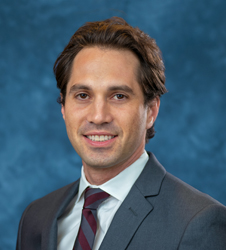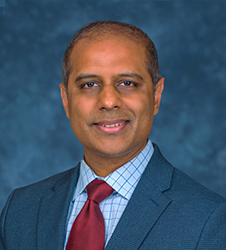Heart Rhythm Center
673
Total ablations in 2021
489
Total device implants in 2021
400
Atrial Fibrillation ablations in 2021
6
Specialized Electrophysiologists
The Heart Rhythm Center (HRC) covers all of Virginia Hearts Electrophysiology (EP) patient needs; providing services to a broad patient population. Our team is trained to handle all cases, from routine through more advanced and we strive to deliver the highest level of care. We see our patients at 6 of the 9 Virginia Heart Offices and 7 hospitals throughout Northern Virginia. We are equipped to manage all of your Electrophysiology needs to include: Arrhythmia Management, Watchman Implants, Lead Extractions, Ablations, implantable cardiac devices (Pacemakers, Defibrillators, and Implantable Loop Recorders), and remote monitoring through our Cardiac Monitoring Center (CMC).
An Expert Team
The highly skilled electrophysiologists at Virginia Heart manage and treat the entire spectrum of ablative and device based heart rhythm disorders in addition to stroke prevention. Electrophysiologists, or heart rhythm specialists, focus on the electrical system of the heart in order to restore a regular rhythm. The Heart Rhythm Center at Virginia Heart is comprised of 7 electrophysiologists, 4 electrophysiology Physician Assistants and 4 electrophysiology nurses.
Cutting Edge Technology
Virginia Heart electrophysiologists are widely recognized for their excellence and participate in numerous clinical trials that bring new technologies to our patients. Our success rates are exceptional, which speaks to the quality of our team of electrophysiologists at Virginia Heart. One of our pioneering electrophysiologists, Dr. Haroon Rashid, performs the most advanced treatments for Atrial Fibrillation, including FIRM-guided therapy, a state of the art mapping system and ablation technology for treating patients with persistent atrial fibrillation.
Comprehensive Heart Rhythm Care
An electrophysiologist has extensive training in diagnosing and treating abnormal heart rhythms or heart rhythm disorders. They can monitor the heart’s rhythm with home monitoring devices or even tiny implanted devices to monitor rhythm long-term. Electrophysiologists perform diagnostic catheter based tests to precisely locate the origin of abnormal heart rhythms, and can use radio waves or ultra-cold (cryo-balloon) catheters to ‘ablate’ areas in the heart causing these abnormal rhythms. They also implant pacemakers and Implantable cardioverter-defibrillators. When necessary, Virginia Heart physicians works closely with cardiac and vascular surgeons, often working side-by-side in the operating room to perform life-saving procedures for our patients who need open-heart surgery to repair or treat complex heart conditions.
Cardiac Remote Monitoring
The Cardiac Monitoring Center (CMC) is responsible for the monitoring of our nearly 4,000 patients with implantable cardiac devices. Remote monitoring allows the patient to send transmissions, from their implantable device, in the comfort of their home. This used to require an office visit every three months. Now a patient is only asked to have an annual visit. Virginia Heart provides services for all implantable devices including: Biotronik, Bostin Scientific, Ela, Medtronic, Sorian, and St. Jude/Abbott.
Common Questions
How did I acquire this heart rhythm problem?
Some heart rhythm disorders are due to bad luck, while others can be brought on by other heart conditions such as heart failure or coronary artery disease. We will examine all causes to look for any reversible problems.
How will my heart rhythm disorder affect my heart function?
Certain arrhythmias, for example atrial fibrillation, can cause a reduction in your heart's function due to excessively fast heart rates for prolonged periods of time.
Can I live a normal life with my arrhythmia?
Depending on the type of arrhythmia and the associated heart rate, a normal quality of life may be possible. However, medical therapy may be necessary, and this may sometimes cause side effects such as fatigue and intolerance with exertion.
What is an ablation?
An ablation is a procedure that requires the placement of tubes, also called catheters or wires, from the leg or chest into your heart via large veins. The catheters have platinum tips that can sense your arrhythmia and aid it's location and termination of the arrhythmia itself via heat or cold energy.











